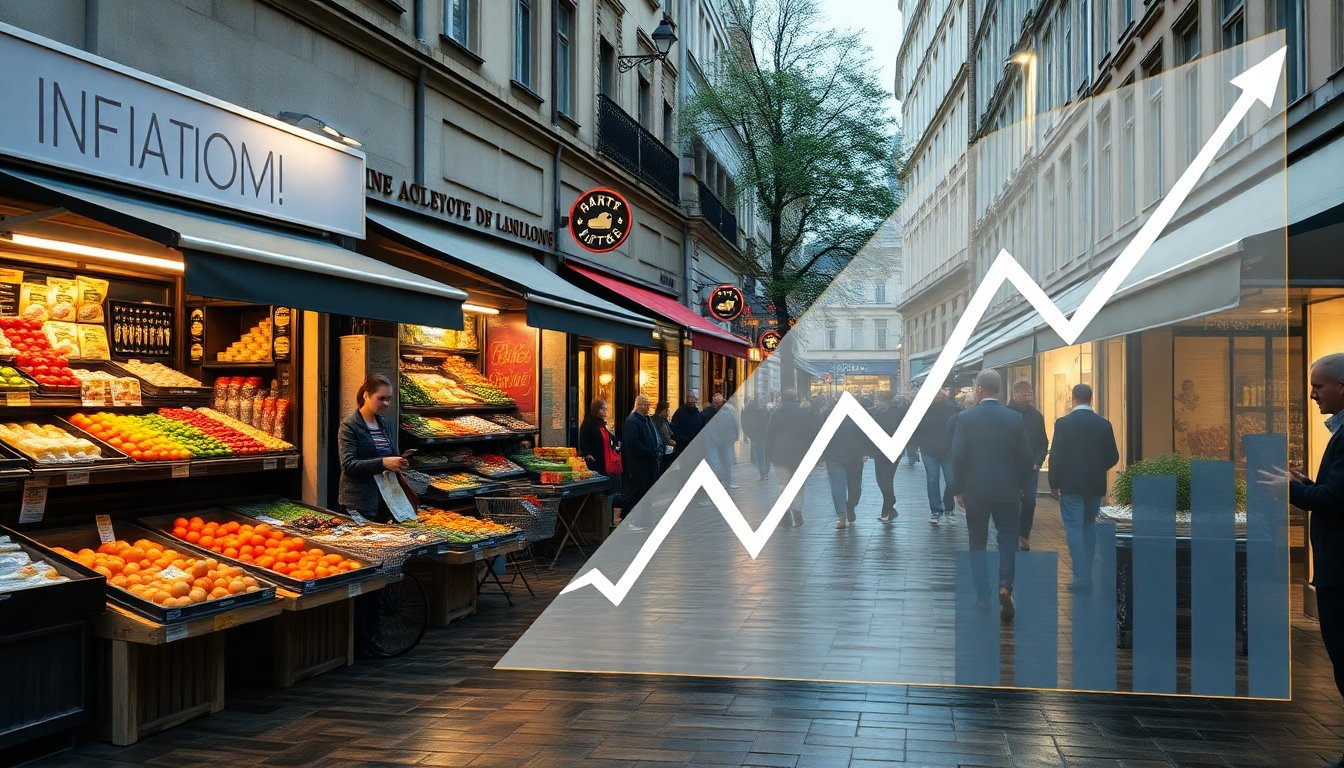Table of Contents
Recent economic reports indicate that inflation has accelerated in both France and Germany. This trend is significant as the European Central Bank (ECB) appears poised to maintain its current interest rates. Figures for September show a 2.4% increase in consumer prices in Germany, while France recorded a 1.1% rise compared to the same month in the previous year.
These developments suggest a potential shift in the economic landscape of the Eurozone, raising discussions around monetary policy and its implications for consumers and businesses.
Understanding the inflation dynamics
The rise in consumer prices results from several factors, including increased demand and supply chain disruptions. As economies recover from the impacts of the pandemic, consumer spending has surged, exerting upward pressure on prices. Additionally, ongoing supply chain challenges continue to limit the availability of various goods, further exacerbating inflationary trends.
Factors driving inflation in Germany
Germany, recognized for its robust economy, has experienced a notable increase in inflation rates. The 2.4% rise reflects a combination of strong domestic demand and rising energy costs. As consumers increase their spending, businesses struggle to meet demand, leading to higher prices for goods and services.
Moreover, the energy sector has faced significant pressures, with global oil and gas prices climbing. This situation directly impacts the cost of living for German households, contributing to the overall inflation rate.
Inflation trends in France
In France, a 1.1% rise in consumer prices has been reported. Although this figure is lower than that of Germany, it still indicates a concerning trend. The French economy, steadily recovering, has also been affected by rising costs in essential sectors such as food and energy.
Furthermore, the French government has implemented several measures aimed at stabilizing prices. However, these efforts may offer only temporary relief. As the economy continues to rebound, the potential for further inflationary pressures remains a significant concern for policymakers.
ECB’s response to rising inflation
As inflation rates increase in both countries, the role of the ECB becomes increasingly critical. The central bank has historically prioritized price stability, and its decisions regarding interest rates will be closely monitored. Despite rising inflation, the ECB has indicated a likelihood of keeping interest rates unchanged, aiming to support ongoing economic recovery.
This decision may surprise some analysts, who expect that higher inflation could prompt a tightening of monetary policy. However, the ECB appears to consider the potential impact of raising rates on economic growth and consumer spending.
Implications for consumers and businesses
The steady rates maintained by the ECB, in light of rising inflation, could have wide-ranging effects. For consumers, the increasing cost of living may lead to challenges in budgeting and spending. As prices for everyday goods and services rise, households may need to adjust their financial priorities.
These developments suggest a potential shift in the economic landscape of the Eurozone, raising discussions around monetary policy and its implications for consumers and businesses.0
The balance between growth and inflation
These developments suggest a potential shift in the economic landscape of the Eurozone, raising discussions around monetary policy and its implications for consumers and businesses.1
These developments suggest a potential shift in the economic landscape of the Eurozone, raising discussions around monetary policy and its implications for consumers and businesses.2


